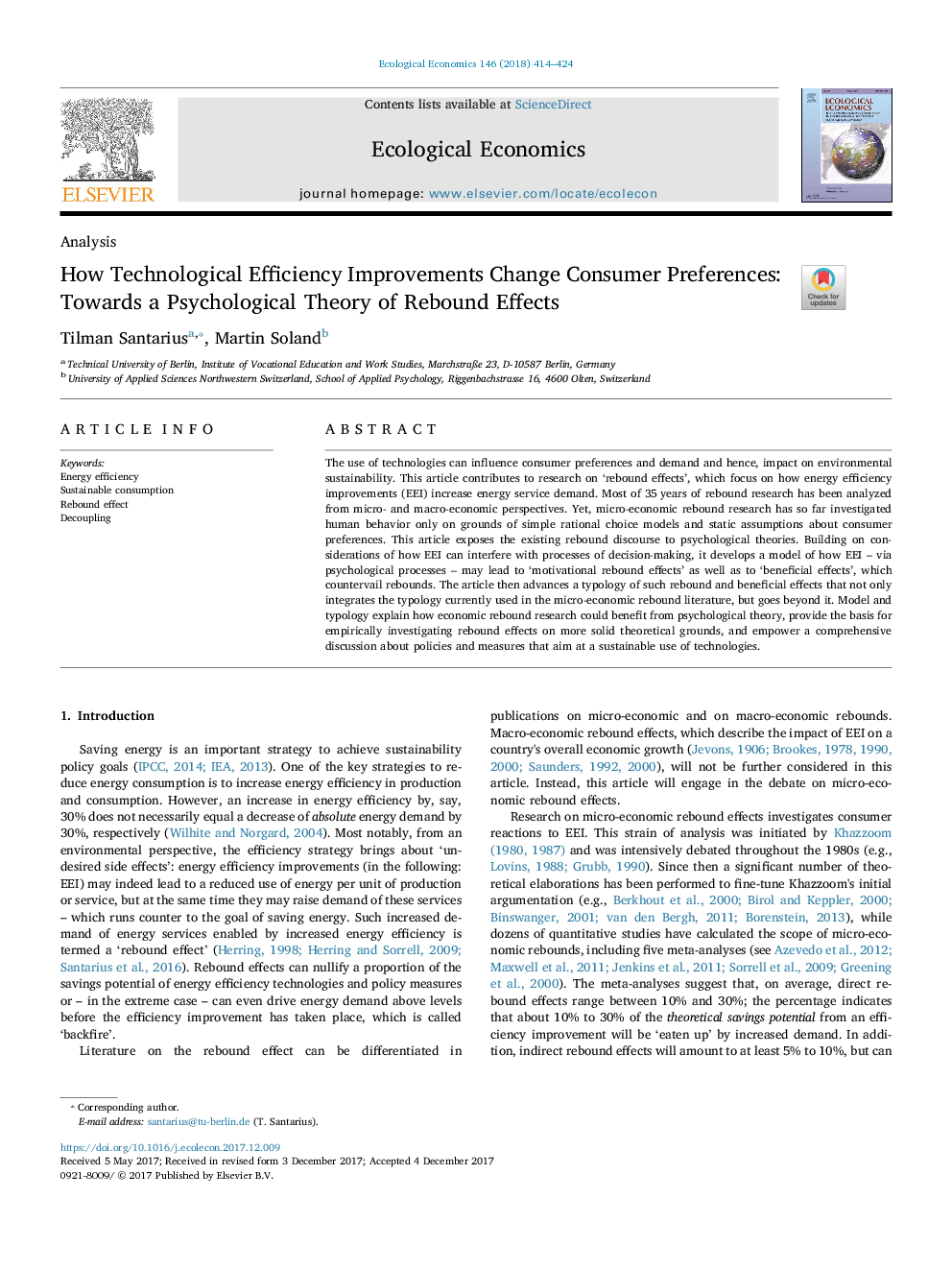ترجمه فارسی عنوان مقاله
چگونه پیشرفت های کارآیی تکنولوژیکی تغییر دادن ترجیحات مصرف کننده: به سوی یک نظریه روان شناختی از تأثیرات بازگشتی
عنوان انگلیسی
How Technological Efficiency Improvements Change Consumer Preferences: Towards a Psychological Theory of Rebound Effects
| کد مقاله | سال انتشار | تعداد صفحات مقاله انگلیسی |
|---|---|---|
| 98817 | 2018 | 11 صفحه PDF |
منبع

Publisher : Elsevier - Science Direct (الزویر - ساینس دایرکت)
Journal : Ecological Economics, Volume 146, April 2018, Pages 414-424
ترجمه کلمات کلیدی
بهره وری انرژی، مصرف پایدار، تأثیر بازتاب، جدا کردن،
کلمات کلیدی انگلیسی
Energy efficiency; Sustainable consumption; Rebound effect; Decoupling;

